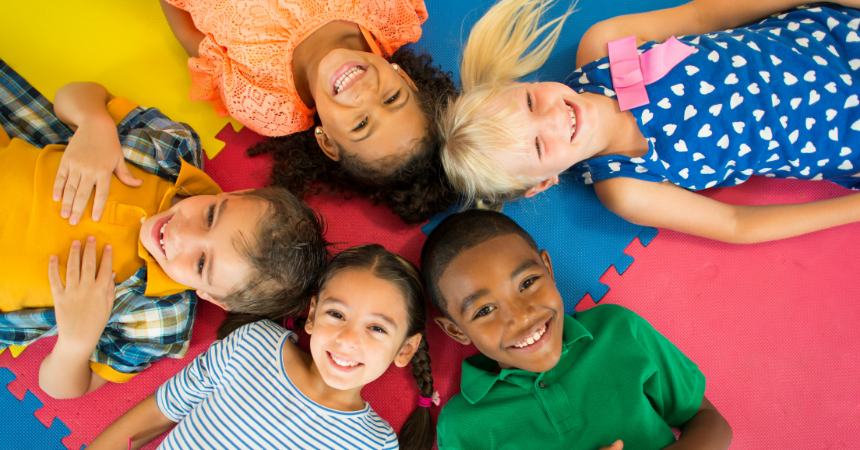Humanity Begins in Early Childhood


“Humanity” can refer to several related concepts; however, as defined here, it refers to the positive qualities that make us human, such as compassion, kindness, and empathy, as well as to ideals such as upholding human rights, promoting justice, and fostering a society where everyone’s dignity and wellbeing are respected.
As humans, we possess several remarkable qualities that set us apart from other species. These qualities include the capacity for complex problem-solving, abstract reasoning, planning, and use of sophisticated language.
We also possess the ability to be self-aware, which helps us understand how our thoughts, feelings, and actions impact others. Self-awareness supports our capacity for moral reflection, and thus the ability to know right from wrong and to change our course of action should we stray.
While our experiences in adulthood contribute to shaping our attitudes and human characteristics, childhood represents the best opportunity to instill concern for other people and nurture positive human traits. Studies indicate that even babies as young as just a few months old are able to identify certain aspects of right and wrong.
Most of us would agree that we want our children to learn how to be human based on certain “right” qualities, such as honesty, caring, kindness, compassion, empathy, integrity, humbleness, gratefulness, generosity, and acceptance of others.
Although different cultures and societies may have different ways of expressing these qualities, they are all examples of basic human morality that lay the foundation for positive human experiences and speak to our overall human existence — our humanity. Qualities in opposition to these would be envy, hatred, selfishness, revenge, arrogance, greed, self-importance, violence, deception, and dishonesty.
I doubt any parent would look at their newborn baby and say to themselves, “I want my child to grow up to be greedy, arrogant, and dishonest” — at least I hope no one would.
All people involved in a child’s life have the responsibility to raise that child in accordance with what are considered qualities that will help them live a happy and fulfilling life and contribute to the wellbeing of others – including their families, communities, and societies. Early childhood teachers, families, and community members are in an ideal position to encourage children to be kind to each other, collaborate with each other, share, be honest, show compassion, and consider the feelings of others.
Teachers in early childhood education programs and childcare centers create environments that help children learn to respect and value human differences and provide critical lessons in the nature of humanity, including the notion that all people should be valued no matter their race, religion, culture, or ability.
Early childhood curriculums include attention to the social-emotional development of young children, helping them to understand and manage their own emotions, build positive relationships with others, and navigate social situations effectively. This involves developing self-awareness, self-regulation, social awareness, and responsible decision-making. Early childhood teachers know how important it is to support children as they develop the skills and attributes that are crucial for a child’s learning, well-being, later academic success, and experience of humanity.
As children explore the world in the context of their own relationship to it — their own human existence — they must be protected so they feel safe doing so. Children need safe and supportive environments so they can explore, develop, and learn as they grow.
On a broader level, protecting humanity involves upholding human rights, promoting justice, and fostering a society where everyone’s dignity and wellbeing are respected. This includes safeguarding children from violence, discrimination, and other abuses, as well as ensuring access to services that meet their basic needs and provide them with learning opportunities.
If children are mistreated, abused, experiencing violence, or are hungry, it will be very difficult for them to develop healthy human emotions and acquire positive foundational traits of humanity. Children who struggle for mere survival are being denied their right to optimally learn, grow, and develop, which should be the true gift of life.
When individuals or societies use violence and engage in wars, they are endangering innocent children who will suffer long-term psychological, social, and physical consequences. These actions not only threaten children’s right to humanity but also may make them vulnerable to recruitment as child soldiers, exploitation, or various forms of abuse and sexual violence. Propagating war is about as far as one can get from true humanity, and it harms the short-term and long-term wellbeing of not just of individuals but also whole societies.
In the evolution of our human experience, we are at a tipping point.
At times, greed, revenge, selfishness, and dishonesty are being celebrated and even accepted as the norm, which creates an imbalance in our understanding of basic human morality. We need a greater focus on the effects of such negative behaviors and a transformational understanding across nations that acts of violence, greed, arrogance, and dishonesty are negatively reshaping the way we live in our nations and as a global community.
How can we, or should we, come together to counter the impact of this adverse and harmful redefining of humanity and moral behavior? What human values do we agree are foundational to nurturing our existence, especially that of our children?
Our basic humanity and lifelong capacity to live successful and cooperative lives within societies begins in childhood. If we care about children and care about the continuation of our humanity, then we must do our part.
Our children need examples of moral behavior as they grow and learn. How do we all — including teachers, parents, grandparents, caregivers, neighbors, business leaders, and government officials — model through our everyday actions that we value compassion, generosity, acceptance of others, honesty, and kindness? Where can we find examples for our children to follow?
Life is a personal journey of self-discovery, but, at its core, human life is also valuable because of the potential we all have to positively impact others. Embracing our own humanity is reflected in how we have chosen to live each day and how we choose to treat others. Surely, this is the most important lesson we can offer young children.
 Diane Whitehead, President & CEO
Diane Whitehead, President & CEODiane Whitehead has dedicated her career to issues that affect the lives of children and families. She specializes in global education, children’s education and learning, the human right to education, nonprofit leadership, management, strategic direction-setting, and program development.
Through her strategic guidance and management of this 130+year-old organization, Diane has expanded its global reach, built partnerships with education-focused organizations around the world, designed impactful programs, and participated in key international education forums and United Nations’ initiatives, a recognition of her commitment to transforming education. As Chief Executive Officer, she is dedicated to building CE International’s relevancy, reach, and impact.
Diane is the creator of Education Diplomacy and co-author of the Education Diplomacy Professional Standards. She also co-authored the International Principles of Practice for Educators to guide and inspire practitioners and to elevate the education profession by highlighting the incredible service that educators provide to both international and human development. Both Education Diplomacy and the International Principles of Practice are forging new pathways for the professional development of educators.
Diane is available to speak on education topics, leadership, change management, and the future of humanity. If you would like to invite Diane for a speaker engagement at a conference or event, please contact Kacy Kostiuk, Director of Communications, at kkostiuk@ceinternational1892.org.